Herry Nugraha or who is often called Herry is one of the entrepreneurs born in Tanah Pasundan who is involved in the agribusiness sector. The start-up that was founded with 2 partners, namely E-tanee, was successfully entered as the Top 9 Accelerate Gojek Batch 3. E-tanee is an application that focuses on food and agricultural products. Starting from the problem, namely farmers and breeders who do not get good economic rights. E-tanee is one of 8 business units of the Perwiratama Group. Perwiratama Group is a company that has been successfully built in an integrated manner in the last 5 years because it includes business activities from upstream to downstream. Not only busy taking care of his business, Herry is also trusted to join the West Java BUMD (Regional Owned Enterprise) as one of the resource persons for guidance and to be the only representative of IPB. Herry also wants to contribute to the country by evaluating and planning a future roadmap. Before becoming an entrepreneur as he is now, this Cianjur-born man had worked in several companies before finally deciding to become an entrepreneur. Herry admitted that he felt a turning point when Herry got a work assignment to Europe. At that time, Herry also paid attention to the work culture of the people there and was moved to become entrepreneurial. In addition, Herry’s motivation to become an entrepreneur is because he wants to live more freely and flexibly. The path to becoming an entrepreneur as outlined by the Almighty brought Herry together with Cecep and Sahid. With their intentions and with complementary backgrounds, the three of them decided to establish Perwiratama Group.

Behind his success, this one entrepreneur admits that IPB’s Business School plays a role in shaping an entrepreneurial mindset, especially regarding competitive advantage and collaboration. With the mindset that has been taught, the impact is an understanding of dealing with problems, business competition, how to treat all stakeholders, and makes it easier to create value in the business and pay attention to every aspect of the value chain. “One of the subjects I feel the most important to apply in business is about Michael Porter’s competitive advantage. To be able to compete with other businesses, we must have a strong point to differentiate our products from other similar products, ”he said. In building a business for beginners, Herry suggests focusing and running a business collaboratively. Herry had experienced several failures in doing business such as cafes and pizza factories because he was not focused and everything was taken care of alone. However, this is not used as an obstacle to starting a business.
“Do it whenever it’s possible. Business is easy as long as you know how. Really, “he said with a smile. As an alumni of the IPB Business School, Herry hopes that the students will expand their network of connections. “But, if you are not ready to build a business, you can work first with the intention of learning and making that experience a provision when starting a business. Because, the real business is in the working place, not on campus. ” Even though now his business is getting more and more shining, Herry still remembers his grief when he was just starting to start a business because basically every business will inevitably experience a phase that is not smooth. “In business, we usually go through 4 stages. Forming or forming is the initial stage. After that, there is such a thing as the storming stage or the business chaos stage, usually at this stage the business person is tested whether he can solve the problem or give up halfway. If you can pass this stage, the next stage is norming or normal. After that, we will go to the performing or growth stage. “
Herry said that the storming stage is the stage where entrepreneur and non-entrepreneur can differentiate from their mentality. The traits that must be possessed by entrepreneurs include: drive (having great energy to grow), determination (having to be sure of what to do), persistent (persistent in trying), and resilience (resilience to any problem). To solve problems at the storming stage, you must be rational and professional. Herry has a principle that he always applies, namely ‘Think Big, Act Big’. “If the business wants to be big, you have to think big too. If our business is still a beginner but has a big mindset, gradually the business will adjust. Even if we want to work together with the big players because we have to take big steps, “he said. “Like E-tanee, which until today still wants to be developed even more, therefore we are also working with large companies and large financial institutions,” he continued.
For Herry, the most challenging thing in running a business is managing money because managing a business must also talk about managing cash flow. Starting from the capital that most people give up when they don’t have enough capital to do business. When asked for an opinion on financial strategy, Herry replied, “From the basic capital of the business, what is important to pay attention to is the initial cash flow to meet the needs of capital expenditure and working capital, it can be obtained from” other people “(use other people’s money, but non-bank. yes!), various sources, for example third parties (the public through the sharing economy model), angel investors and venture capital. As for the problem of managing finances, when we start doing business we must have a clear plan so that cash flow and profit and loss can be predicted. “
Herry and his two partners succeeded in bringing Etanee to further development and last month also had the opportunity to take part in Demo Days in front of 15 local and foreign venture capitals. Not only that, Etanee will also collaborate with the GoJek ecosystem and other startup finalists to the next growth stage. All of this can be achieved because of the founders who ‘Think Big, Act Big’. In terms of social impact, E-tanee will reshape or reconstruct the food industry to be more equitable and specific to agri-foods (agriculture-based food products). In addition, E-tanee also solves supply chain problems, thinking about how a good product can reach consumers at a fair price and economic players in each business chain get the price according to their business. When viewed financially, the ‘Think Big’ is about getting rich quickly.
“In doing business, we depend on what we think and do. Never have inferiority syndrome because everyone has more value. Having your own motivation and building your inner spirit is important because an entrepreneur must be independent, ”he said. The motivational sentence also closed the interview session.
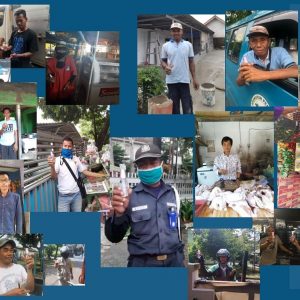
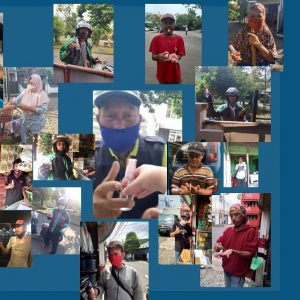

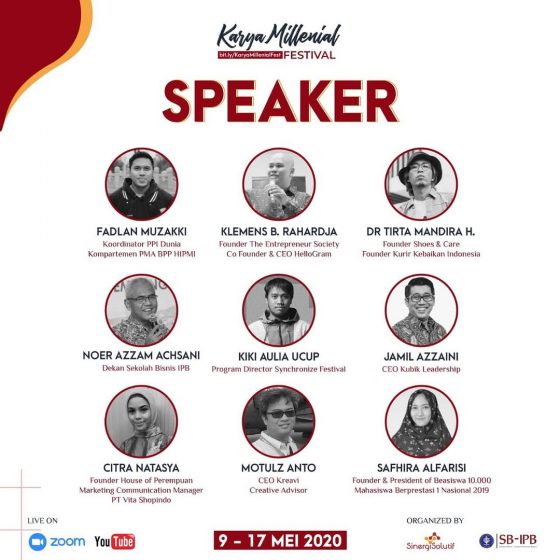
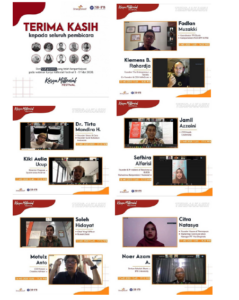
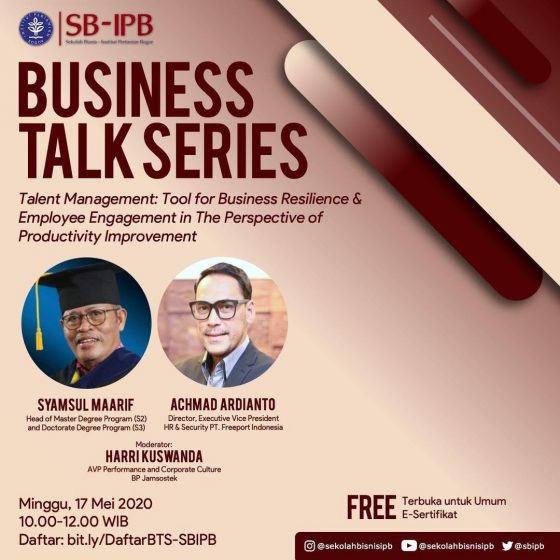
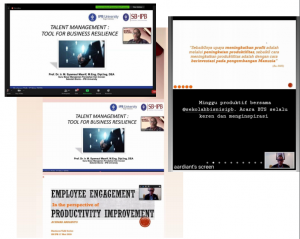
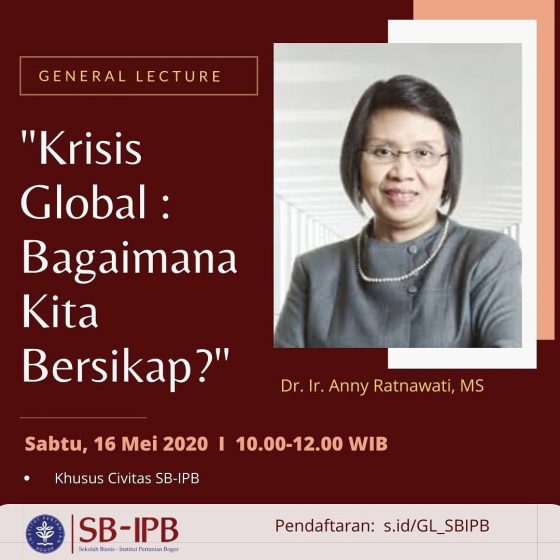
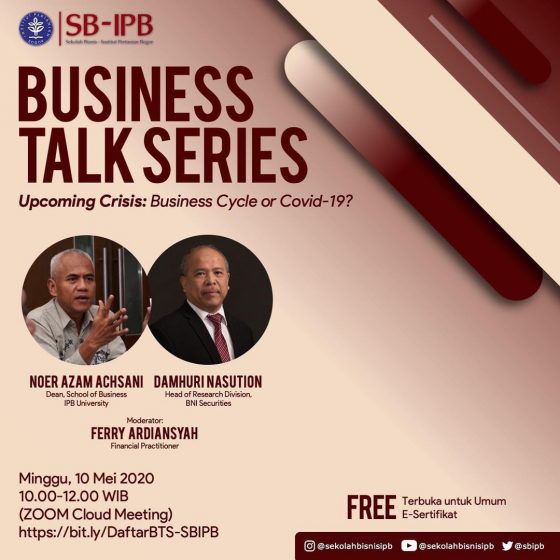
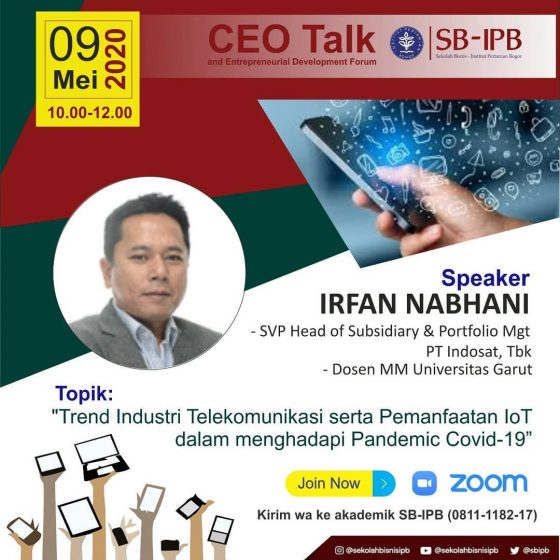

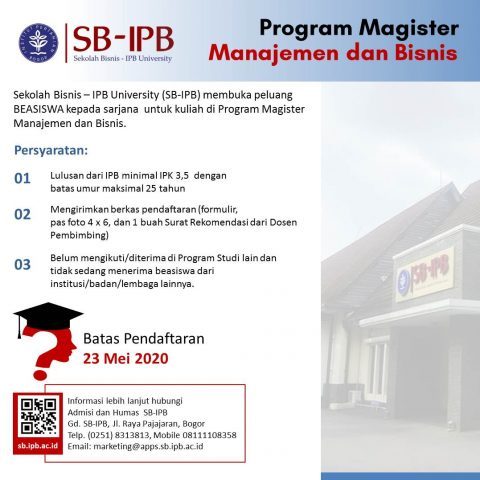
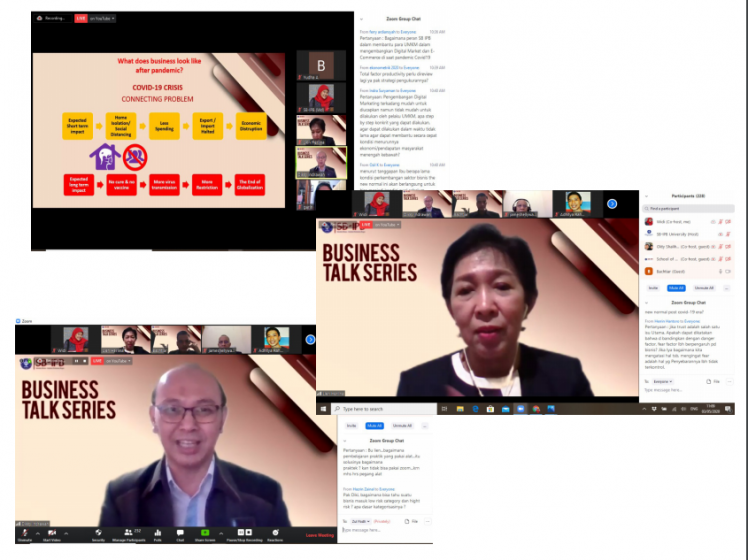
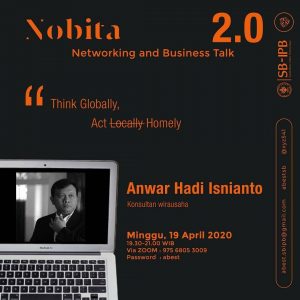
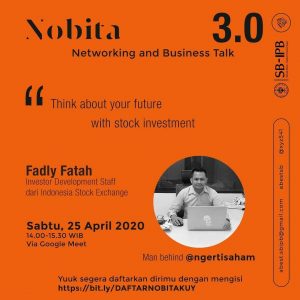







Recent Comments